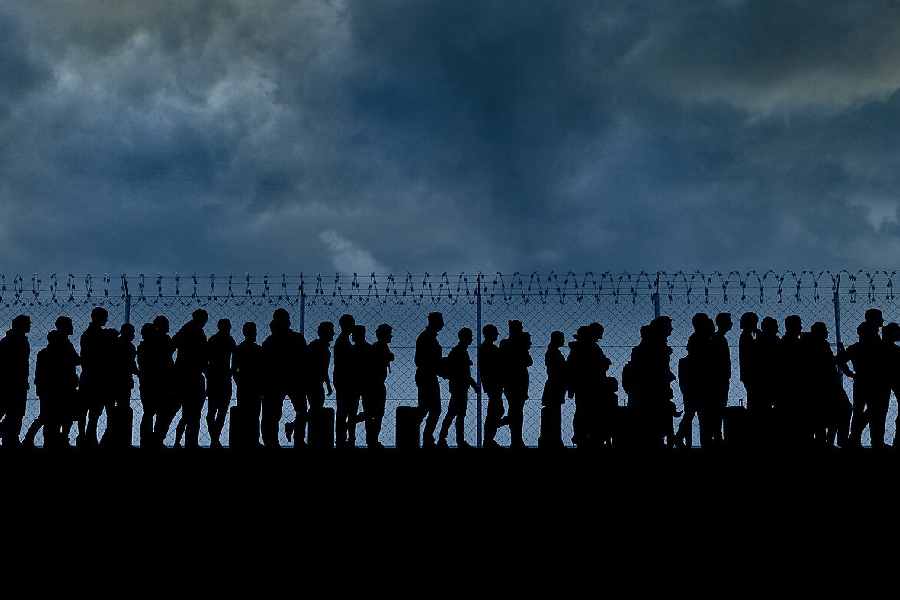Two Venezuelan men detained in Texas were told by a U.S. official that they will be deported imminently under an 18th century American wartime law, lawyers for some Venezuelan migrants told a U.S. federal court on Friday.
In a court filing, lawyers for the American Civil Liberties Union asked U.S. District Judge James Hendrix in Abilene, Texas, to block any such deportations.
The men's deportation would be the first since the U.S. Supreme Court told President Donald Trump's administration on April 7 that it must provide notice to Venezuelan migrants it is seeking to deport under the 1798 Alien Enemies Act and give them the opportunity to challenge their deportations in court.
Asked about the deportations on Friday, Trump said he was unfamiliar with the particular case but added: "If they're bad people, I would certainly authorize it."
"That's why I was elected. A judge wasn't elected." he told reporters at the White House.
Earlier on Friday, Assistant Secretary for U.S. Homeland Security Tricia McLaughlin said in a statement on Friday, “We are not going to reveal the details of counter terrorism operations, but we are complying with the Supreme Court’s ruling.”
The Supreme Court did not indicate how many days' notice should be provided. Lawyers around the country have asked that the migrants be given 30 days' notice to allow them to contest their deportations. The Trump administration has not said publicly how much notice it intends to give the migrants.
On Thursday night, at least two Venezuelan migrants held at the Bluebonnet Detention Facility in Anson, Texas, were told they had been designated for removal under the Alien Enemies Act and may be deported either on Friday night or Saturday, the ACLU said.
On March 15, the Trump administration deported more than 130 alleged members of the Tren de Aragua gang to El Salvador, citing the Alien Enemies Act, best known for being used to intern and deport people of Japanese, German and Italian descent during World War Two. Many of the migrants' lawyers and family members say they were not gang members and had no chance to dispute the government's assertion that they were.
U.S. District Judge James Boasberg in Washington, D.C., swiftly blocked any further deportations under the law. Trump then called for Boasberg's impeachment, prompting a rare rebuke from U.S. Chief Justice John Roberts, who said appeals, not impeachment, are the proper response to adverse court decisions.
Boasberg is now probing whether the Trump administration violated his order to return the migrants, and warned that he could hold officials in contempt of court. The Justice Department asked an appeals court on Friday to pause Boasberg's investigation.
The Trump administration faces more than 200 legal challenges to its policies. Democrats and some legal analysts say Trump officials in some cases are delaying compliance with court orders, signaling a potential willingness to disobey an independent, coequal branch of government.
On Friday, a judge in Boston barred the administration from fast-tracking deportations of migrants to countries other than their own without giving them a chance to show they fear being persecuted, tortured or killed there.
A Maryland judge is probing whether officials violated her order to facilitate the return of a Salvadoran man wrongly deported to El Salvador. An appeals court in the case urged Trump on Thursday to ease his confrontation with the courts.
Also on Thursday, Democratic U.S. Senator Chris Van Hollen of Maryland met the man, Kilmar Abrego Garcia, who is being held in a notorious El Salvador prison for gang members. Abrego Garcia's lawyers say he has never been charged with, nor convicted of, any crime and deny a Justice Department accusation that he belongs to the criminal gang MS-13.
The judiciary is not the only U.S. institution to come under pressure. The Trump administration has targeted others that have long cherished their independence from partisan politics, such as universities and law firms.










